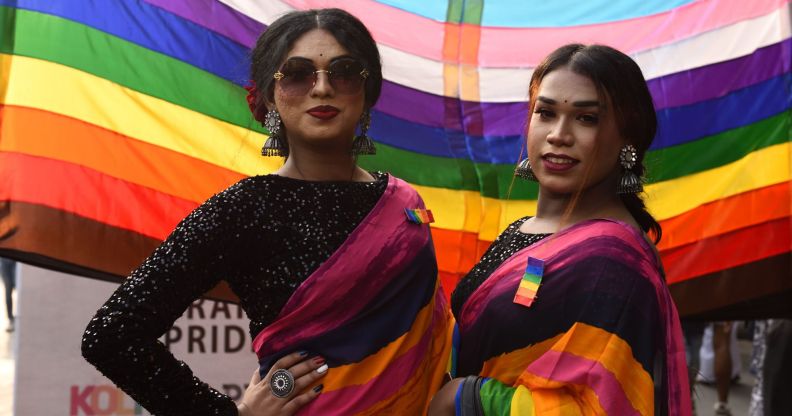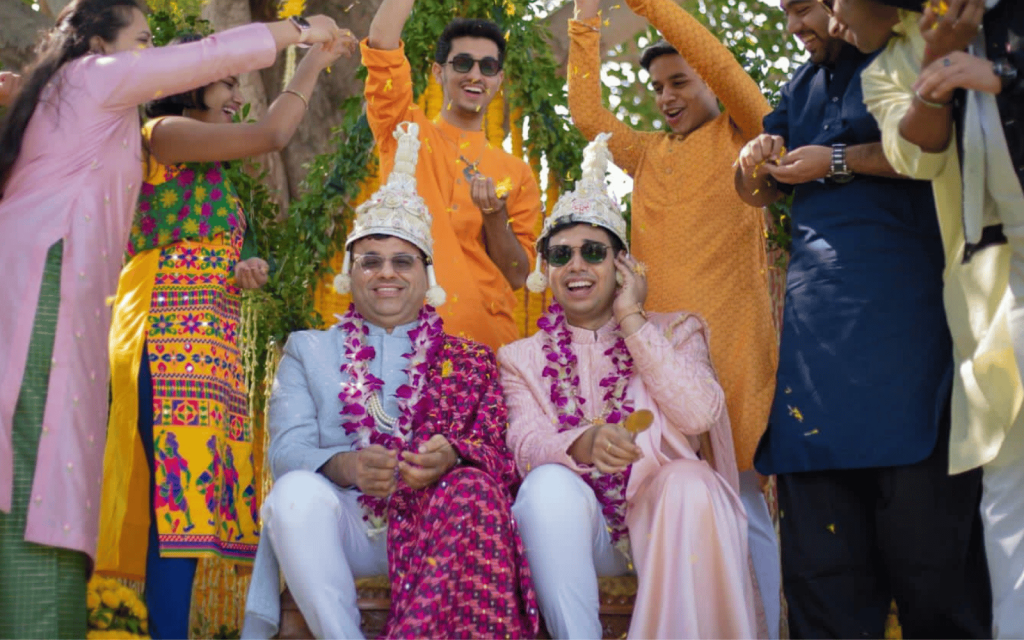India inches closer to becoming next country to legalise same-sex marriage

The Indian Supreme Court has ruled to legalise same-sex marriage. (Getty)
The Indian Supreme Court is expected to hear arguments in favour of same-sex marriage this week.
As part of a set of petitions issued by two same-sex couples, the New Delhi court will hear arguments for the recognition of same-sex marriage on Friday (6 January).
The lead petition, filed by gay couple Supriyo Chakraborty and Abhay Dange, has argued that denying LGBTQ+ citizens the right to marry is an affront to their right to equality.

Currently, India does not officially recognise same-sex marriage, but allows couples to engage in an “unregistered cohabitation.”
This effectively means that same-sex couples aren’t legally permitted to inherit assets or adopt. It can also complicate hospital visits if one-half of the couple is under strict visitation rules when hospitalised.
The petitioners have argued that, since inter-faith heterosexual couples are protected via Supreme Court rulings, then LGBTQ+ couples would naturally follow.
The second petition, filed by Parth Phiroze Mehrotra and Uday Raj, argues that barring LGBTQ+ couples from marriage equality violates several articles of the constitution.
“If the petitioners, as a same-sex couple, enjoyed access to the civil institution of marriage, they would not face untold practical difficulties, both vis-a-vis each other and their children,” the petition read.
“The denial of the fundamental right of marriage to persons like the petitioners is a complete violation of constitutional law.”
As part of the 6 January hearing, the Indian government is expected to voice its opinion on both petitions, as well as its current position on same-sex marriage.
Indian government unlikely to support same-sex marriage
Prime minister Modi’s government previously declared that same-sex couples in India “cannot claim a fundamental right for same-sex marriage” during a similar hearing in 2021.
It clarified its stance to the Delhi High Court, where it said that LGBTQ+ couples do not deserve the same rights as “traditional” heterosexual couples.
“Living together as partners and having a sexual relationship by same-sex individuals is not comparable with the Indian family unit concept of a husband, wife and children,” the government told the High Court.
While the government’s position is unlikely to change, a shift in public perception toward LGBTQ+ couples could see a victory for petitioners in a similar fashion to the decriminalisation of same-sex relationships in 2018.

